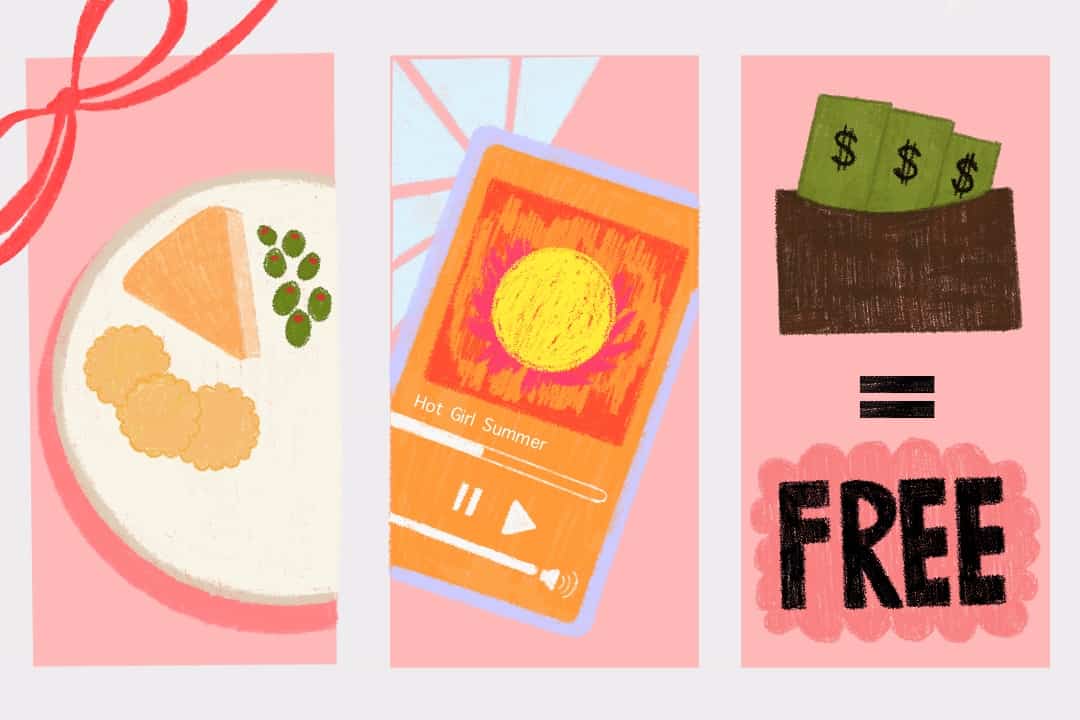About a month ago, I was getting ready to go to a dance with a couple of friends. We were curling each other’s hair, chatting, putting on makeup, and listening to songs from early 2000’s Disney Channel original movies. Amid pure fun, I remarked, “This is what girlhood is.”
Although girlhood is not simply participating in such activities, my use of the term “girl” to refer to myself, a legal adult, comes in the context of many social media users adding the word “girl” to everyday activities and aesthetics. From eating “girl dinner,” to going on “hot girl walks,” to labelling yourself and other women as “that girl,” the “girl” trend has taken the internet by storm.
The trend is striking, as I cannot imagine previous generations enthusiastically labelling themselves as “girls” past the age of 18. The responsibilities expected of women, such as taking care of families in the mid-twentieth century or working a job in the later half of the twentieth century, were often thrust upon them at a much earlier age.
At 23 years old, my late Nonna was already married and helping her family immigrate to Canada. This makes sense as, according to The National Center for Family & Marriage Research, the median age of first marriage for women rose from approximately 20 to 27 between 1960 and 2015 in the US. Perhaps the ‘adult responsibilities’ she was forced to engage in by life circumstances allowed her to step into womanhood more readily. For my Nonna and other women of different cultures and periods, girlhood has usually had a defined expiry date. Thus, in a way, I see my use of the term “girl” as demonstrating the privilege that I must possess to identify myself as a “girl” when I am legally not one.
However, even if we choose not to be big career women or homemakers, childhood eventually comes to a close. I am unsure if it is a positive to self-identify as a girl when the responsibilities of adulthood inevitably lie ahead. To me, the “girl” trend is a symptom of a generation that finds it difficult to grow up.
Billie Walker points out in her Dazed article, “Why ‘girl’ trends need to stop,” that “very few of us can now take the next step into adult life, whether that be renting a place alone or getting a mortgage.” In another example of prolonged adolescence, Gen Z are now getting their driver’s license at a slower rate compared to previous generations. In my view, labelling themselves as women feels inaccurate for many young women who do not participate in traditionally “grown-up” activities like driving, renting a place, and getting a mortgage.
I believe the word “woman” symbolizes a responsible, mature adult who makes decisions for herself and her loved ones. The “girl dinner” trend juxtaposes this as it implies a sense of carelessness, as an adult wouldn’t dare have nothing but morsels of bread for dinner. I see the word “girl” as having a whimsical quality, almost acting as a barrier to responsibilities.
Interestingly, many ‘girls’ participating in these trends are legal adults. Is that always a good thing? Part of me thinks it’s not. Although I enjoy reminiscing on the nostalgia of girlhood, I imagine that some excitement toward the responsibilities found in adulthood is healthy.
The question remains: why would young women purposely seek to infantilize themselves, especially after years of struggling to be perceived as equal? Although the freedom to enter the workforce has been a significant step for women in gender empowerment and financial independence, I believe modern society has made it difficult for women to ‘do it all’ — working, balancing a healthy family life, and socializing. Recently, a young woman named Brielle Asero went viral on TikTok for complaining about the lack of free time in her first nine-to-five job out of college. In her TikTok, she claims that she finds it difficult to have the energy to socialize outside of work hours due to her long commute.
While I can sympathize with the perspective that she has to “face the real world,” I see her tears coming from recognizing a loss of her youthful femininity that can come with advancing roles and responsibilities of women in society. The days of going on “hot girl walks,” eating “girl dinners,” and having endless “feral girl summers” don’t last forever.
Nowadays, many young women must learn the difficult task of juggling corporate life with their personal lives. On the other hand, picking whether you prefer the strawberry girl aesthetic, the clean girl vibes, or the vanilla girl aesthetic feels less strenuous than grappling with the lack of freedom in modern womanhood.
I recognize that this trend is supposed to be fun, and I have analyzed it to oblivion. Nonetheless, I am analyzing it because the “girl” trend implies a fear of adulthood that seems to be an issue for Gen Z. As a tribute to overcoming my fears, perhaps I should start eating ‘women’s dinner’ — but for now, I’ll stick to the more satiating and better-sounding “girl dinner.”
Alia Ginevra is a third-year student in the Faculty of Music at UTSG studying music and political science.


